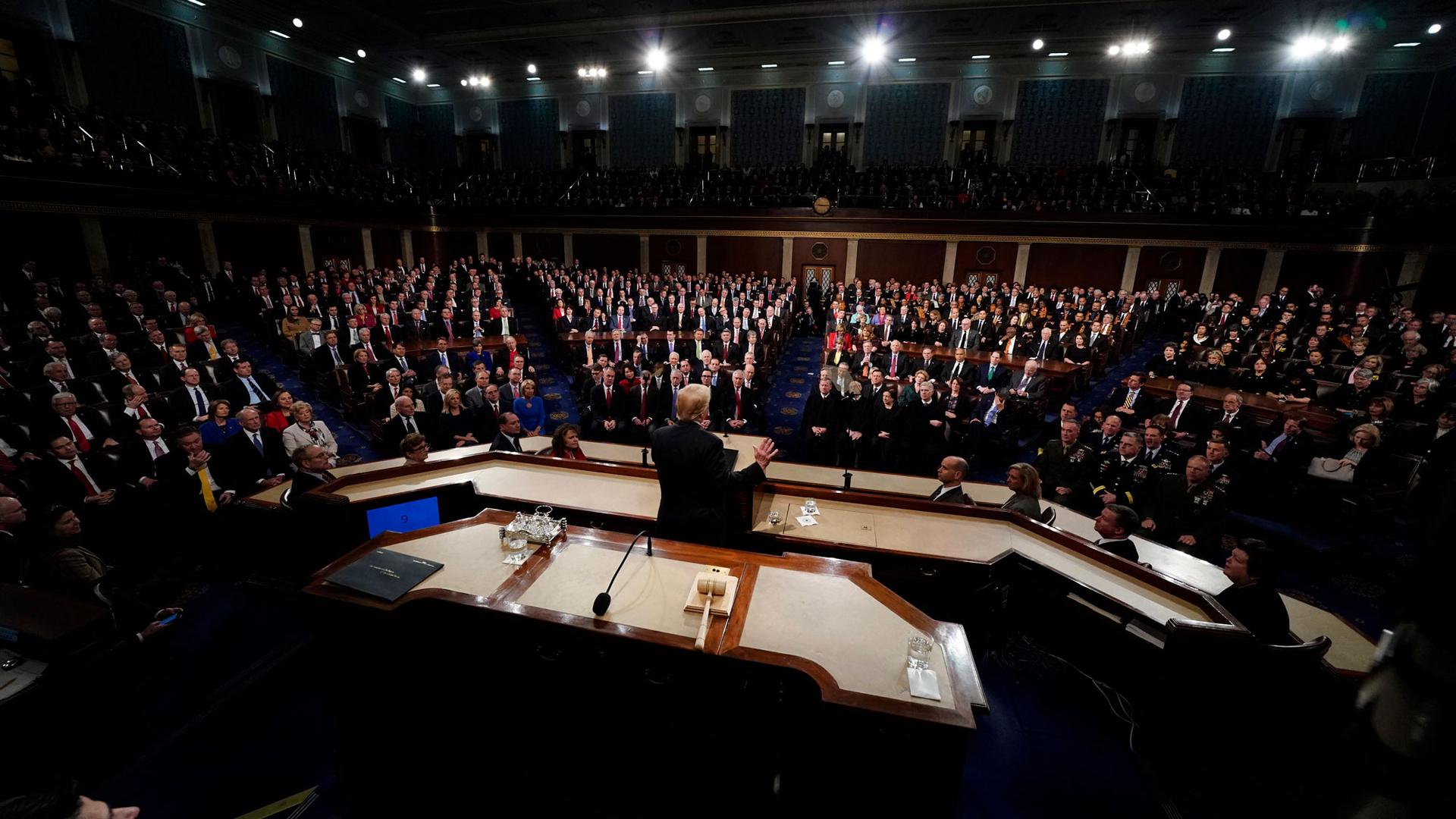Trump says Guantanamo will remain open, calls for four-pillar immigration plan
U.S. President Donald Trump delivered his State of the Union address to a joint session of the U.S. Congress on Capitol Hill in Washington, DC on Jan. 30, 2018.
President Donald Trump on Tuesday urged bitterly divided Republicans and Democrats to work toward compromises on immigration and infrastructure after a bruising year of partisan battles that centered on Trump's leadership.
"Tonight, I call upon all of us to set aside our differences, to seek out common ground, and to summon the unity we need to deliver for the people we were elected to serve," Trump said in his first State of the Union address, delivered in the chamber of the House of Representatives.
Trump used the speech, given annually by presidents to Congress, to try to overcome doubts about his presidency at a time when he is battling a probe into his campaign's alleged ties with Russia and suffering low job approval ratings. The speech was short on details of his policy proposals.
While Trump called for bipartisanship, evidence of the deep divide between the parties was clear. Republican lawmakers cheered wildly at the president's applause lines, while Democrats often sat in their seats silently.
Whether Trump would follow through on his appeal for bipartisan harmony was far from clear. Trump’s past attempts at a unifying message have been undermined by rancorous tweets and divisive statements that have angered Democrats and frequently annoyed lawmakers in his own Republican Party.
The unity plea will first be put to the test in his drive for a compromise on protecting 1.8 million "Dreamers" — people brought illegally to the country as children — who face a March 5 deadline on whether they can begin to be deported.
Trump said he was "extending an open hand" for an immigration deal and that he would provide Dreamers a pathway to citizenship over 10 to 12 years in exchange for funding for a border wall with Mexico and restrictions on legal immigration.
Trump called his plan a "down-the-middle compromise," but some Democrats booed when he said he wanted to rein in "chain migration," the ability of legal immigrants to bring a wide-ranging number of family members into the country.
"Let's come together, set politics aside and finally get the job done," Trump said.
'Depraved character'
Branding North Korea’s leadership “depraved,” Trump told Americans that Pyongyang’s pursuit of nuclear missiles could “very soon threaten our homeland” and vowed a continued campaign of maximum pressure to keep that from happening.
“North Korea's reckless pursuit of nuclear missiles could very soon threaten our homeland,” Trump said. “We are waging a campaign of maximum pressure to prevent that from ever happening.”
“We need only look at the depraved character of the North Korean regime to understand the nature of the nuclear threat it could pose to America and to our allies,” he said.
Executive order keeps Guantanamo open
Trump said he signed an order to keep open the military detention center at Guantanamo Bay, Cuba, which his predecessor, Barack Obama, unsuccessfully tried to close.
"I just signed, prior to walking in, an order directing (Defense) Secretary (Jim) Mattis … to re-examine our military detention policy and to keep open the detention facilities in Guantanamo Bay," Trump said.
'American moment'
Trump took credit for U.S. economic gains including a soaring stock market and a low jobless rate. He boasted about the economic growth he believes will result from tax cuts Republicans pushed through Congress late last year.
"This is our new American moment. There has never been a better time to start living the American Dream," he said.
Trump said he would like a compromise over a plan to rebuild aging roads, bridges and other infrastructure. He said he wanted legislation to generate at least $1.5 trillion through a combination of federal, state and local spending as well as private-sector contributions.
"I am asking both parties to come together to give us the safe, fast, reliable, and modern infrastructure our economy needs and our people deserve," he said.
Trump was calling for the type of cooperation between Republicans and Democrats that has eluded him during a rocky first year in office.
While the rhetoric was often high-flying, Trump provided some reminders of partisan battles over the past year.
He singled out a speech guest, 12-year-old Preston Sharp, for leading an effort to put American flags on the graves of 40,000 veterans, saying the initiative was “why we proudly stand for the national anthem.”
His belittling of National Football League players who refused to stand for the anthem in protest against police shootings of minorities dominated headlines last autumn.
Our coverage reaches millions each week, but only a small fraction of listeners contribute to sustain our program. We still need 224 more people to donate $100 or $10/monthly to unlock our $67,000 match. Will you help us get there today?
